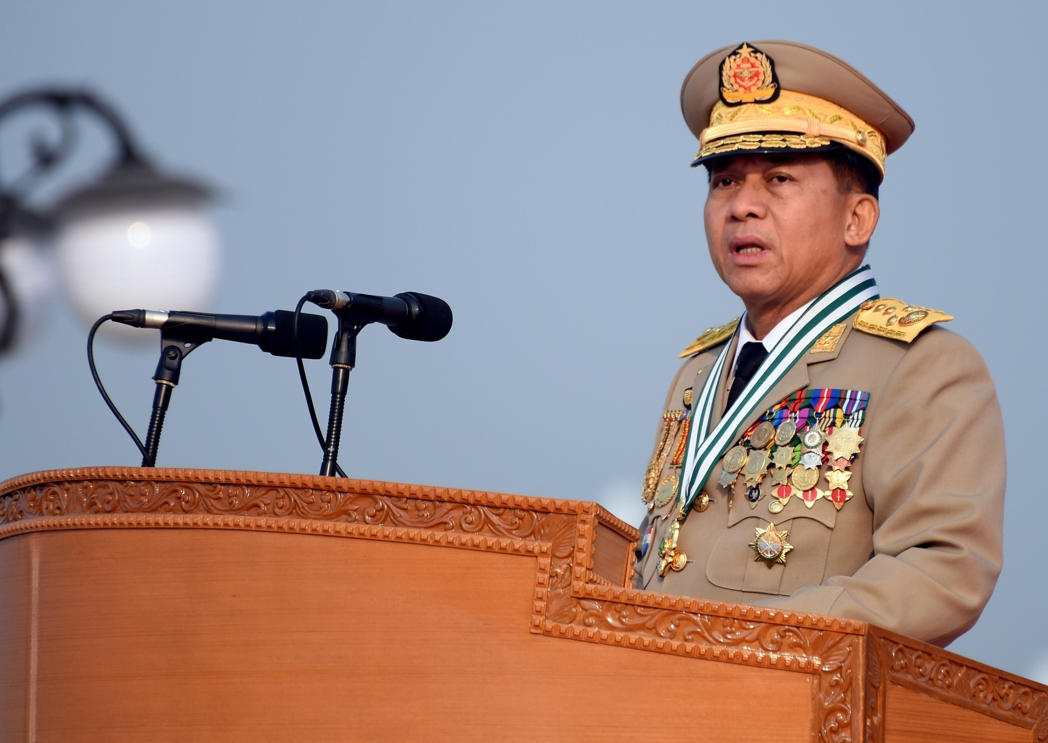The World Bank is one of the latest to announce sanctions, after the US, the UK, the EU and many others, against the military junta that seized power in Myanmar, ousting the recently-elected government of popular leader Aung San Suu Kyi.
The World Bank said that it will not process payments after February 1, 2021. It has stopped payments for withdrawal requests made after the coup though it is still funding emergency coronavirus relief. The all-round coronavirus funding included limiting the spread of coronavirus, protecting health workers and treating patients.
News agency Reuters says that in 2020 the World Bank had approved numerous loans and grants worth US $350 million to help Myanmar combat coronavirus and support its rural sector.
In a statement on its website, the Bank said: "Effective February 1, we have temporarily put a hold on disbursements on our operations in Myanmar, as we closely monitor and assess the situation. The World Bank Group’s internal policies and procedures lay out processes in these situations which we are following carefully. We are putting in place enhanced monitoring of projects that are already underway, to ensure compliance with World Bank Group policies."
Earlier, many Western countries had imposed sanctions against the generals. The US, the EU, the UK and Canada announced sanctions against the South-East Asian nation with a view to pressurising the generals to releasing Suu Kyi and restoring democracy.
Sanctions by the US include restricting exports to the military, freezing access to nearly a billion dollars of Myanmarese assets in the US and also targeting the main players involved in the coup. The US has imposed travel sanctions against senior generals and military officials who have played a direct role in the coup.
Washington has also announced sanctions against three entities owned by the Myanmar military–Myanmar Ruby Enterprise, Myanmar Imperial Jade Co Ltd and Cancri Co Ltd.
The UK too has imposed its own sanctions. These include stopping support for the government-led reforms. However, the aid that the British government provides to the vulnerable sections in Myanmar will continue.
The British government has imposed sanctions on Senior General Min Aung Hlaing, Defence Minister General Mya Tun O, Home Affairs Minister Lieutenant General Soe Htut and the deputy Home Affairs Minister Lt Gen Than Hlaing. The UK has already frozen their assets and put travel bans against them and others involved in the coup and also those seen as assisting the current government.
The EU and Canada also followed in American footsteps and implemented "targeted sanctions" against the Mynamarese generals.
However, countries close to Myanmar–Japan and India have adopted a wait and watch attitude. Japan was even bolstering the democratic and electoral processes in the nearly 10-year old democracy by ensuring equal voting rights for all ethnicities. India too had developed strong mutual relations with both the democratic forces as well as the Tatmadaw – Myanmar's powerful military. Both India and Japan are going slow on the sanctions.
On the other hand, the common Myanmarese citizens accuses China of supporting the generals. People have held protests in front of the Chinese embassy and have asked it not to support the military of clamping down on IT services. China, largely is seen as supporting the coup though warily.
How effective sanctions are in fostering democracy or demolishing autocracy? In a multipolar world, like it is today, West-led sanctions have lost their power.
Myanmarese generals have experienced and weathered sanctions earlier also. Since its independence from the British rule in 1948, the country has been run by different generals for almost half a century. They have led the country through one of its most isolationist phases, with dollops of help from China.
The only difference between then and now is that Myanmar is no longer isolated. It has opened up to the world, made new friends and also reduced its dependence on China.
In a recent opinion for The New Yorker, Steve Coll, says that economic-sanctions have been used extensively this century, but most times these have not been effective. He says: "Yet sanctions haven’t been especially effective, whether they have sought to topple autocrats, prevent nuclear proliferation, or coerce coöperation against drug trafficking. In fact, they work only about a third of the time, and perhaps much less often…"
Coll also says that even "targeted sanctions" – ones that seek to only punish the powerful individuals so as not to harm the vulnerable people – also have limitations. The US list of individuals under targeted sanctions is laughably long.
For the moment, it is the new-gen Myanmarese, with a taste of democracy and flair for the social media, who are holding the fort against their generals. Global condemnations and sanctions work as welcome solidarity for people who have put their hearts and lives into opposing the military regime.




















